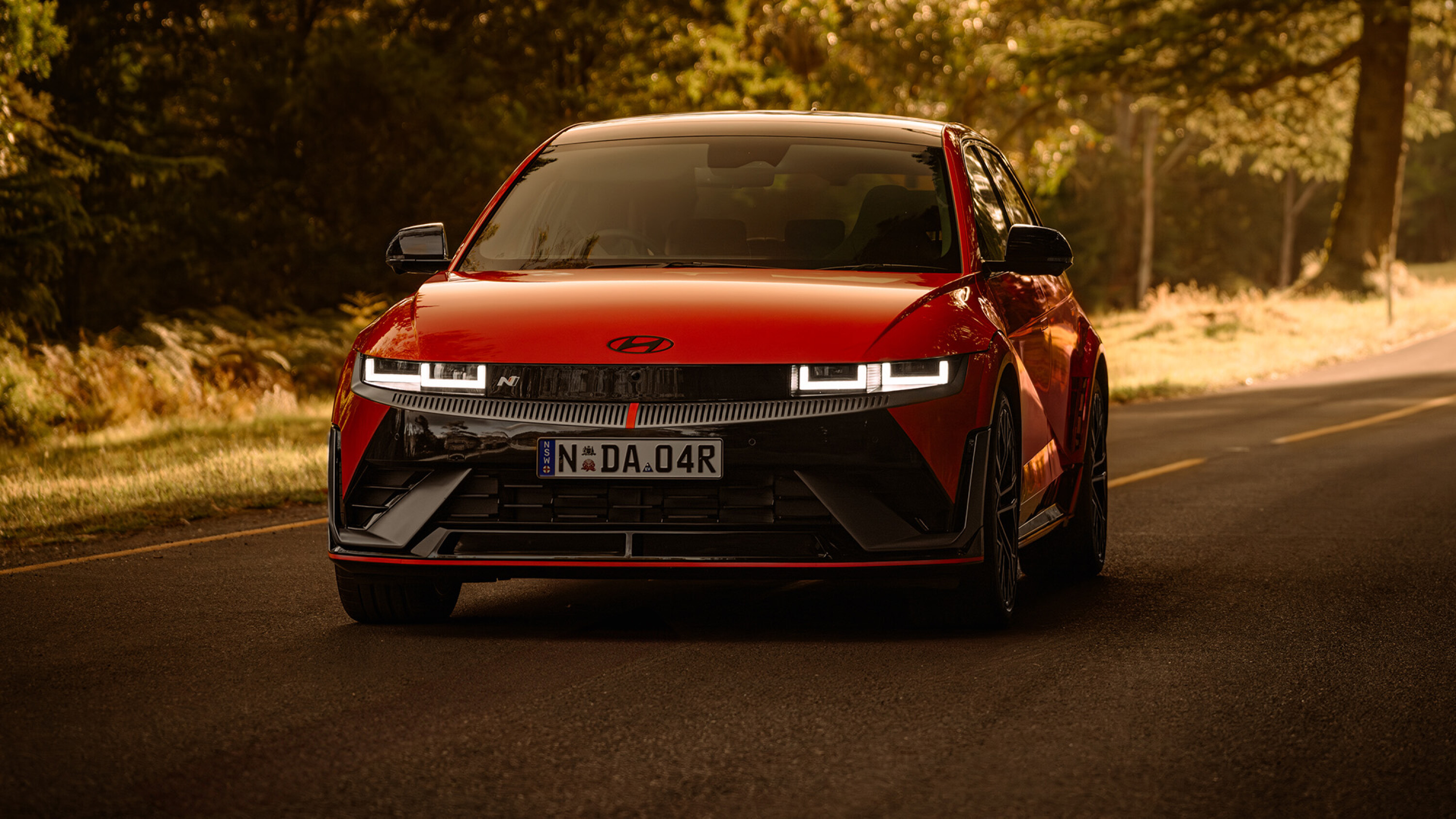Following its initial pre-launch pricing announcement in September, the monstrous new 2024 Hyundai Ioniq 5 N is now on sale in Australia.
We’ve driven the Ioniq 5 N twice since that first announcement. Catch up on our coverage below, and continue down the page for the full pricing and features rundown – and watch for more reviews and comparisons to come very soon.
JUMP AHEAD
Ioniq 5 tested by Wheels
PRICING & FEATURES: 2024 Hyundai Ioniq 5 N
Key Points
- 478kW & 740Nm, 0-100km/h in 3.4 seconds
- ‘N Active Sound’ and convincing simulated gear shifts
- $111,000 before on-road costs
Stiffer, faster, more powerful and engineered to feel like an old-school, petrol-powered performance car: these are the headlines for the first ever EV produced by Hyundai N.
Hyundai is also promising that unlike the first year of sales for the regular Ioniq 5, orders for the N model “will remain open for the foreseeable future”. The brand will no longer pause sales on any Ioniq 5 variant, including the N.
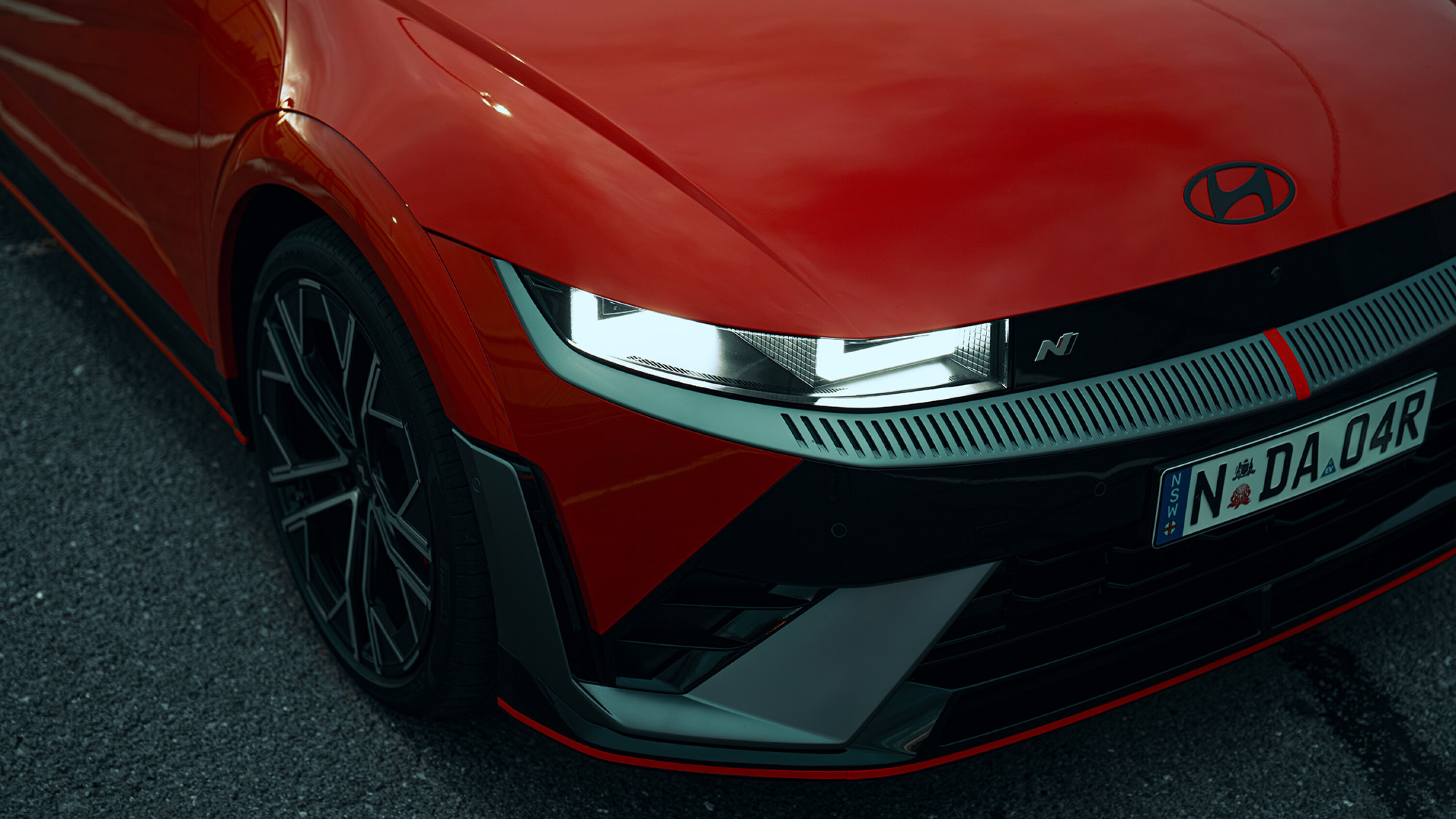
The big details up front
Yes it’s huge money at $111k, but the Hyundai Ioniq 5 N packs up to 478kW and 740Nm in ‘N Grin Boost’ mode.
Despite its 2230kg kerb weigh, the Koreans claim a 0-100km/h time of just 3.4 seconds, thanks to its dual-motor AWD setup.
| 2024 Hyundai Ioniq 5 N: Motors | |
|---|---|
| Motor type | Permanent magnet synchronous motor x 2 (front & rear) |
| Maximum power – front motor / rear motor (with N Grin Boost) | 166 kW / 282 kW (175 kW / 303 kW) |
| Maximum torque – front motor / rear motor (with N Grin Boost) | 350 Nm / 390 Nm (370 Nm / 400 Nm) |
| Maximum power – total (with N Grin Boost) | 448 kW (478 kW) |
| Maximum torque – total (with N Grin Boost) | 740 Nm (770 Nm) |
| 2024 Hyundai Ioniq 5 N acceleration | |
|---|---|
| 0 ~ 100 km/h (with N Grin Boost) | 3.5 sec (3.4 sec) |
| 80 ~ 120 km/h (with N Grin Boost) | 1.9 sec (1.8 sec) |
| 0 ~ 400 m (with N Grin Boost) | 11.7 sec (11.5 sec) |
| 100 ~ 0 km/h | 40.2 m |
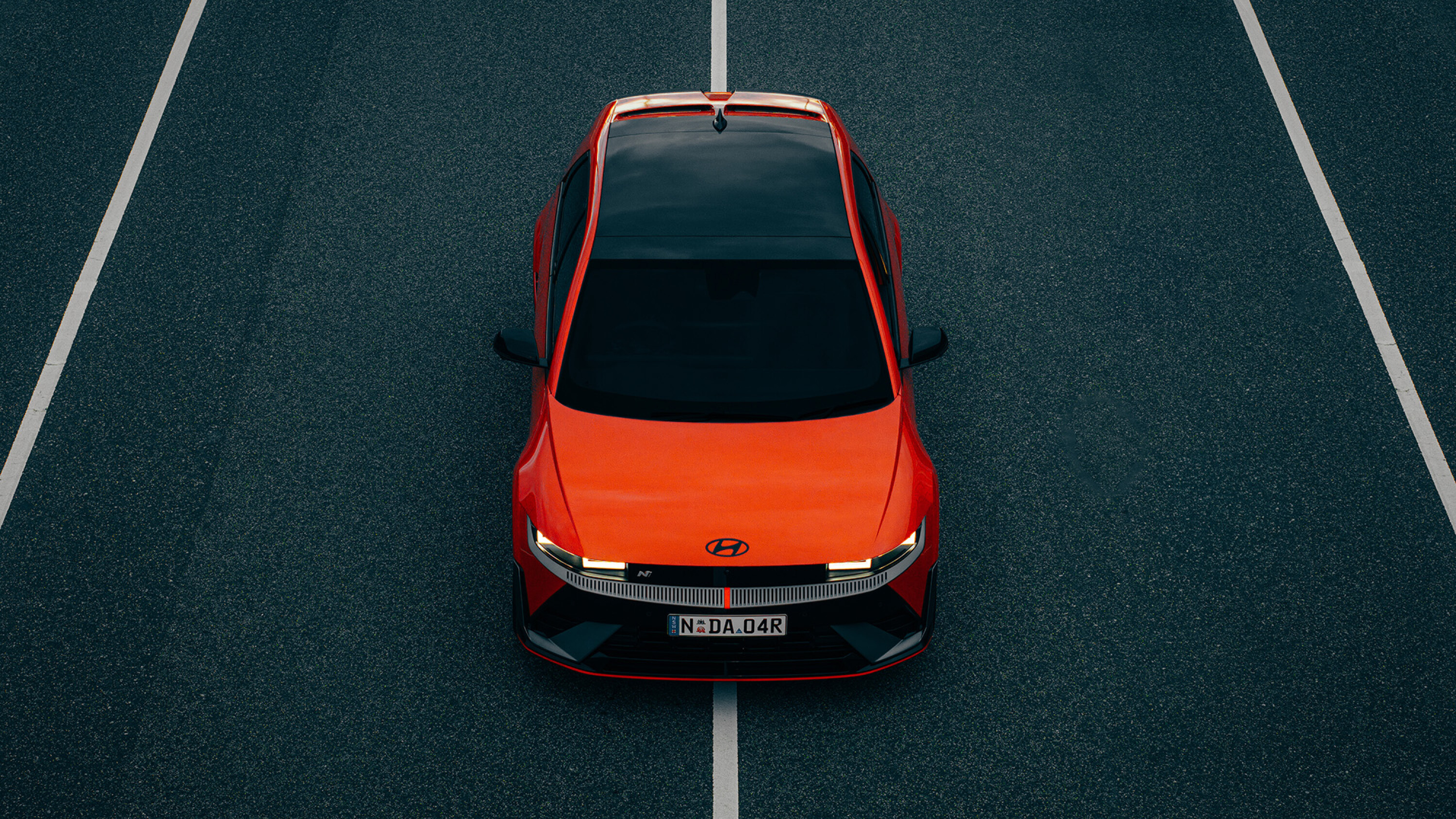
THAT PRICE
The Ioniq 5 N’s starting price makes it around $11,000 more expensive than the similarly powerful but less focused Kia EV6 GT.
Handily, it’s a whopping $170,000 more affordable than a Porsche Taycan Turbo, which offers similar performance and was benchmarked by Hyundai during the N’s development.
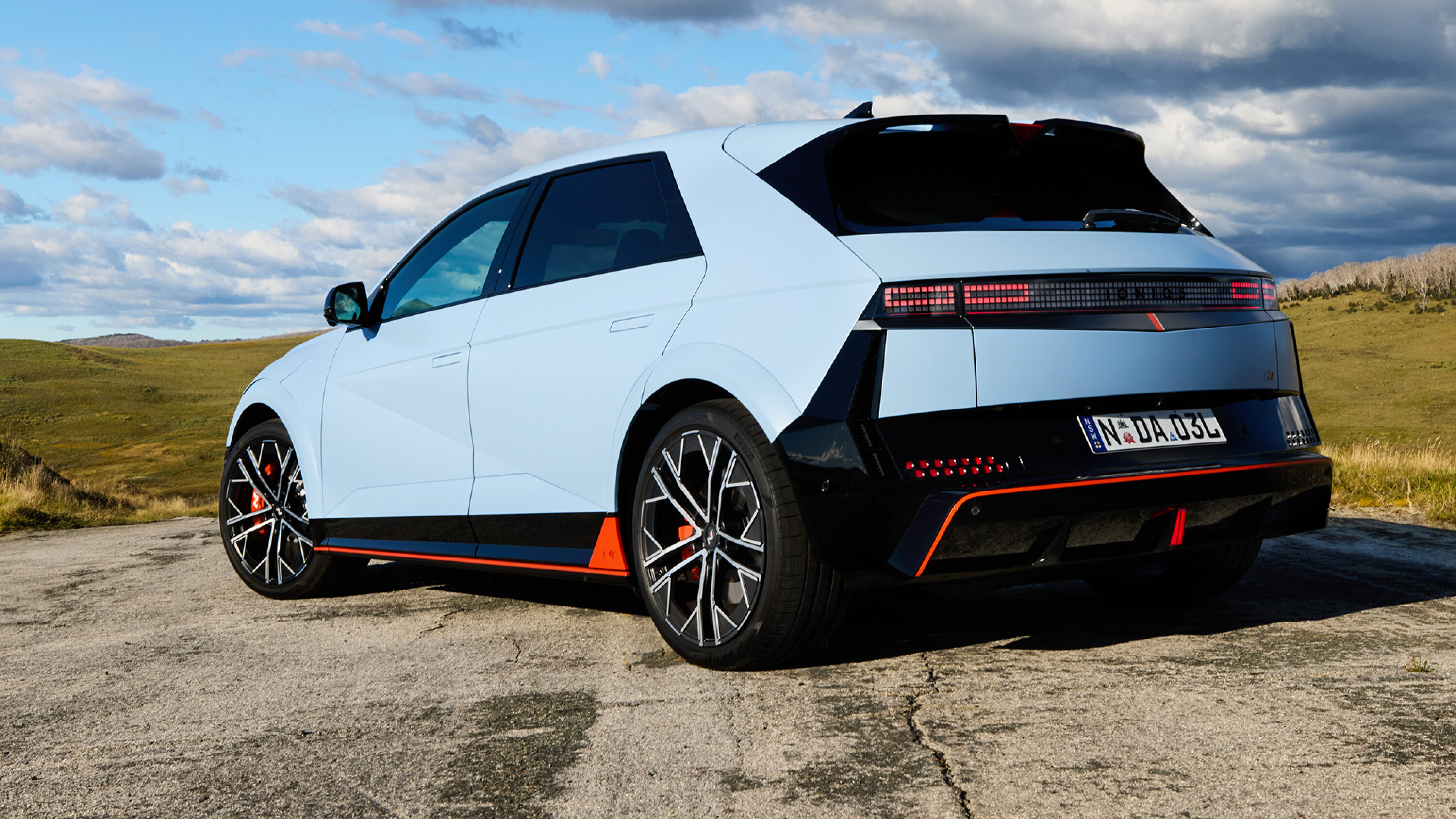
THE POWER
They’re big numbers, that 478kW/740Nm combo – and Hyundai says the N’s outputs played only a small part in the design brief.
The true goal was to create an EV that’s engaging enough to satisfy proper petrol heads.
N’s boffins understand they’re the hardest bunch to win over with a performance EV – so instead of chasing straight-line performance, they’ve engineered solutions to help make their futuristic electric rocket feel and drive like an engaging, petrol-powered hot hatch.
“EV power is the great equalizer. Ultra-fast EVs are a known formula, and in a sense they’re relatively easy to do: big battery, big power, big tyres, zero to 100 in less than four seconds. With IONIQ 5 N, we wanted to go to market with something that was much more than that,” says Tim Rodgers, Hyundai Australia’s product development manager.
“The question was, ‘How do we differentiate?’ The answer was a focus for IONIQ 5 N on driving character, emotion and engagement. They are three simple words, but so hard to deliver: ‘fun to drive’.”
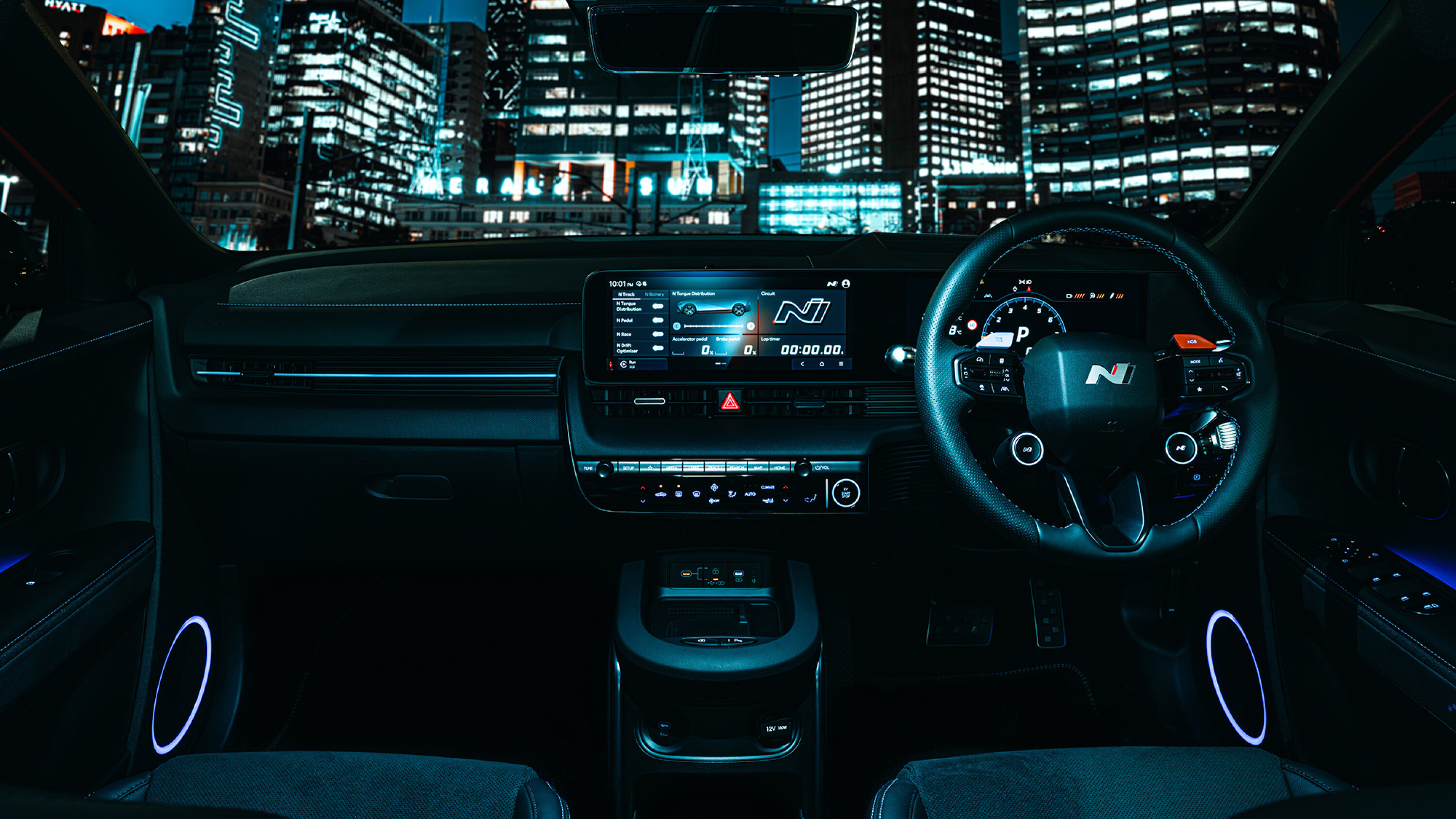
Hot-hatch solutions? N e-shift and N Active Sound are two such tricks
N e-shift is designed to mimic the shift action of an eight-speed dual-clutch and simulates the ‘jolt’ of up- and downshifts by cutting drive to the electric motors.
The digital instrument cluster even includes a tachometer that runs to 8000rpm and you shift ‘gear’ via the paddles behind the steering wheel.
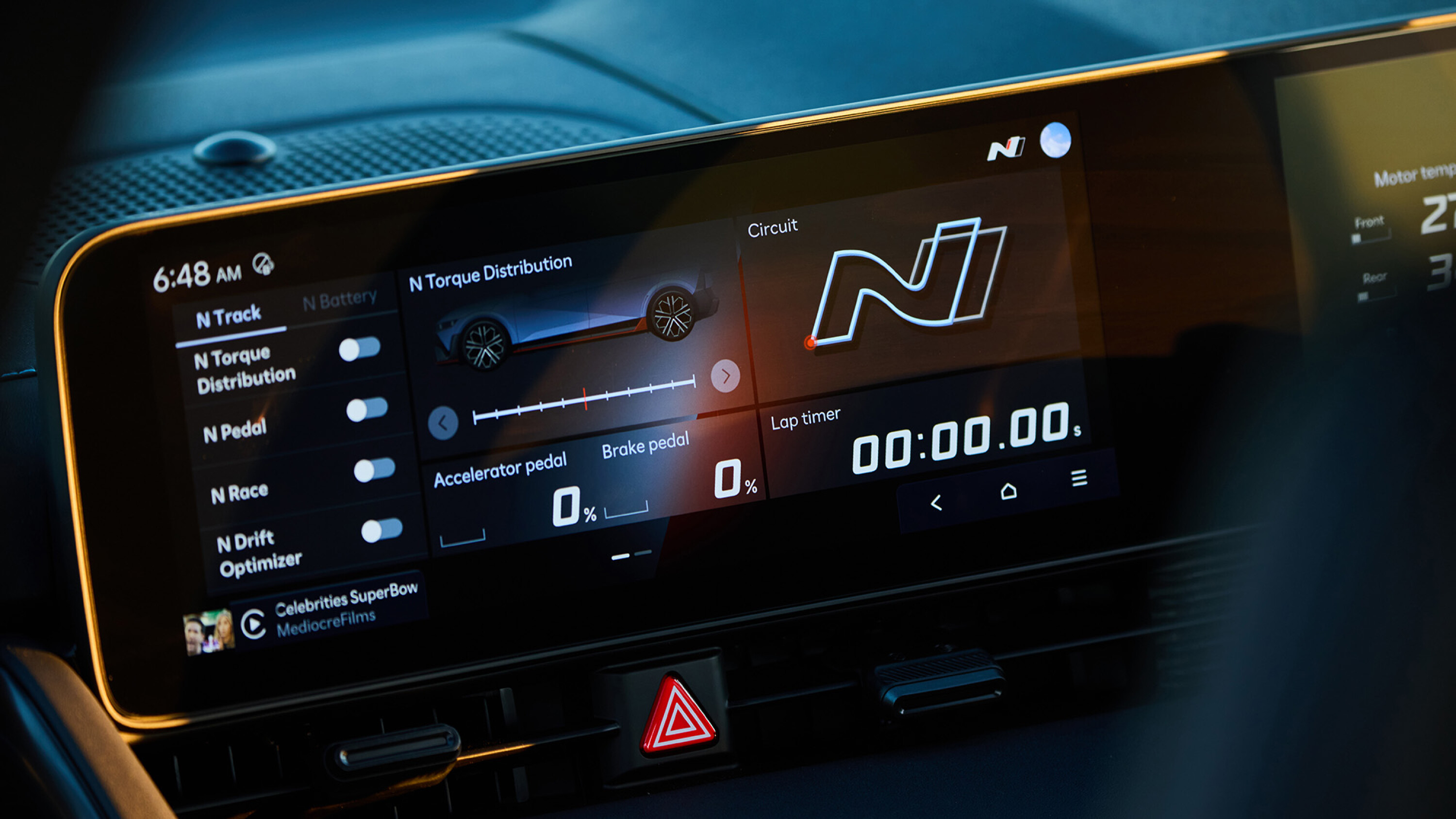
N Active Sound, meanwhile, uses eight internal and two external speakers to deliver an “emotional” soundtrack that sounds like a combustion car.
It even pops and bangs during downshifts. Three sound ‘themes’ are available: ‘Ignition’ sounds like the 2.0-litre turbo in an i30 N, ‘Evolution’ copies the noise of the RN22e concept, while ‘Supersonic’ sounds like a twin-engine fighter jet.
We’ve experienced it a few times now and no Kool-Aid was drunk when we tell you: it’s very cool.
“The challenge was to capture hearts and minds with a high-performance car that behaves in some ways like a captivating and intuitive sports car, rather than just another ‘ballistic-in-a-straight-line’ EV,” Rodgers said.
Watch the N e-shift gear system in action
The goal of the shift and sound systems is to imbue the Ioniq 5 N with the same vibrations, sensations and dynamic calling cards that drivers rely on to judge speed, grip and how close they are to the limit.
Greater connection, basically – which is typically in short supply in a fast EV.
There’s even an integrated ‘Torque Kick Drift’ function, which is part of the Ioniq 5 N’s drift mode designed to simulate the clutch kick action of a rear-drive car, and push the back of the car out more aggressively.
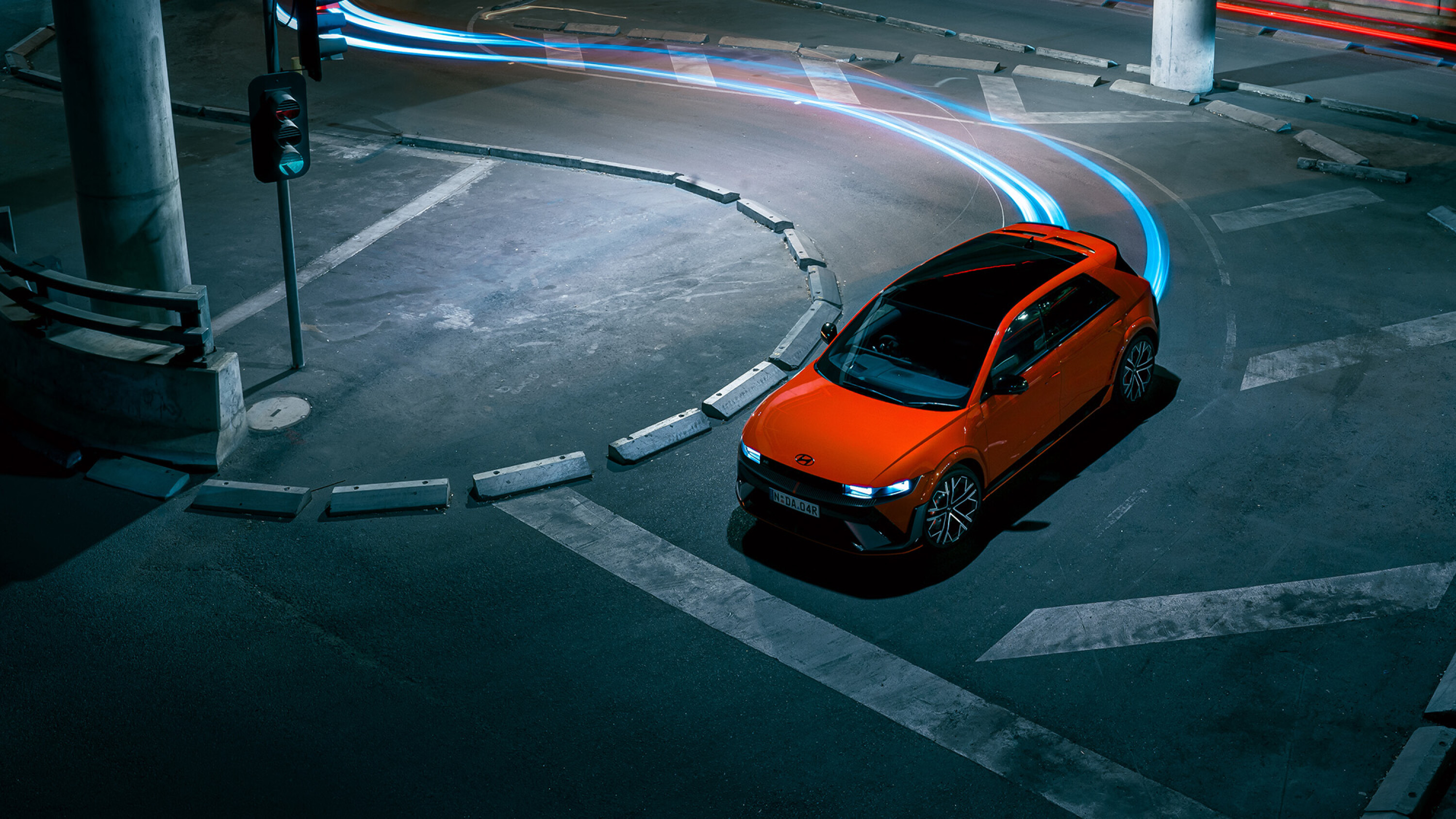
The rest of the Ioniq 5 N’s recipe is performance car 101
Huge 400m front brakes, a stiffer body in white thanks to 42 additional welds and 2.1 extra metres of adhesives, bespoke suspension, and specially tuned steering with a strengthened steering column.
Power is up to 478kW (or 650ps) in boost mode, wheel sizes are up to 21-inches – the alloys are forged aluminium wrapped in specially developed 275/35 R21 Pirelli P Zeros – and overall size is up, too, courtesy of a body that’s 50mm wider, 80mm longer and 20mm lower.
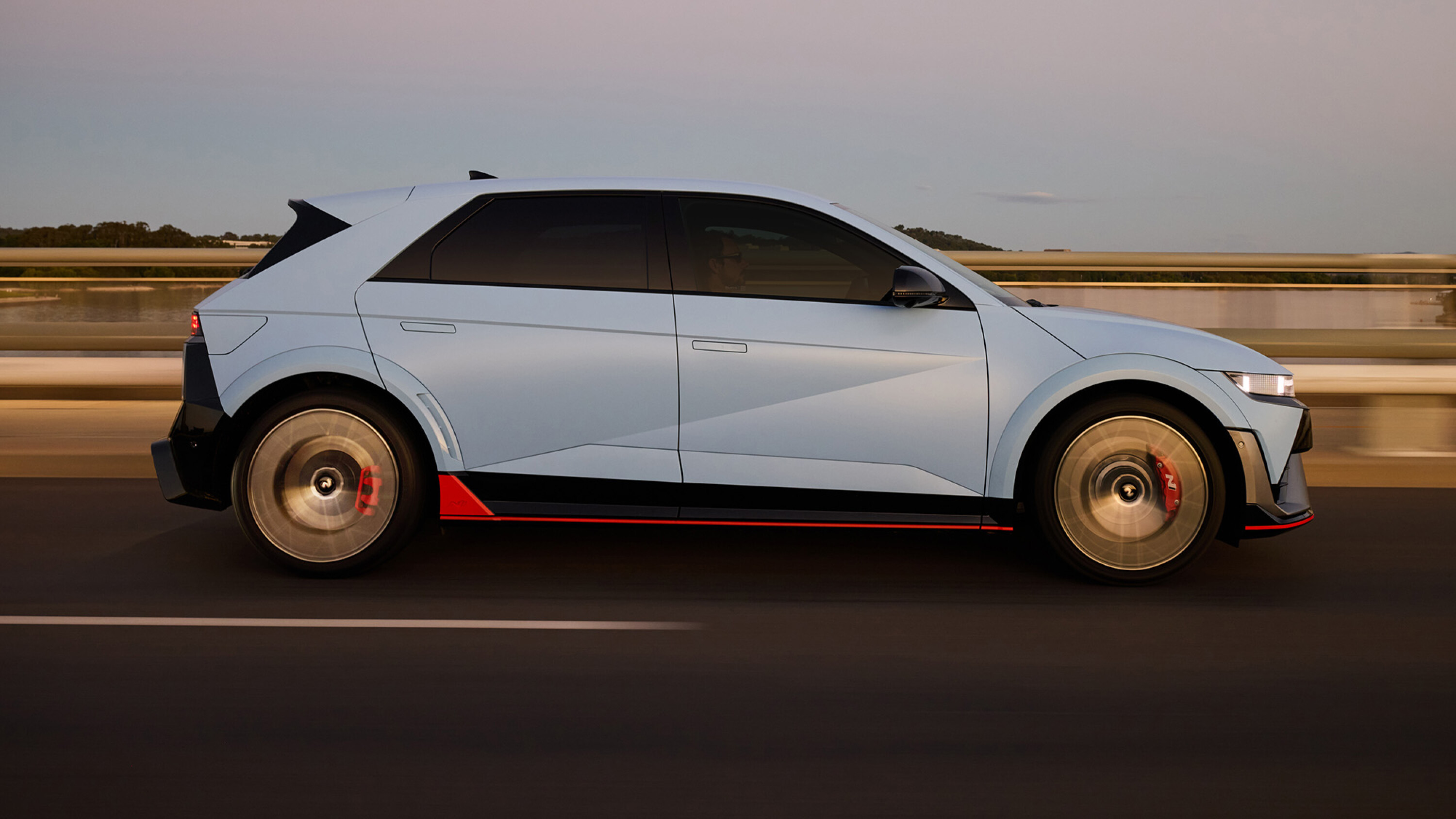
Also new are the ‘Luminous Orange’ highlights, the signature colour for an N electric car.
Inside there are bolstered sports bucket seats that are 20mm lower than the regular Ioniq 5 and a chunky centre console fitted with shin pads has been added to stop your legs swinging around wildly during hard corning.
There’s an increased use of eco-friendly materials, too, like sugarcane yarn and recycled Alcantara on the seats.
The widescreen digital display also has loads of fresh functions like a slider that allows drivers to adjust the torque distribution (fully variable through 11 different levels) and to engage the N Drift Optimiser (Drift mode).
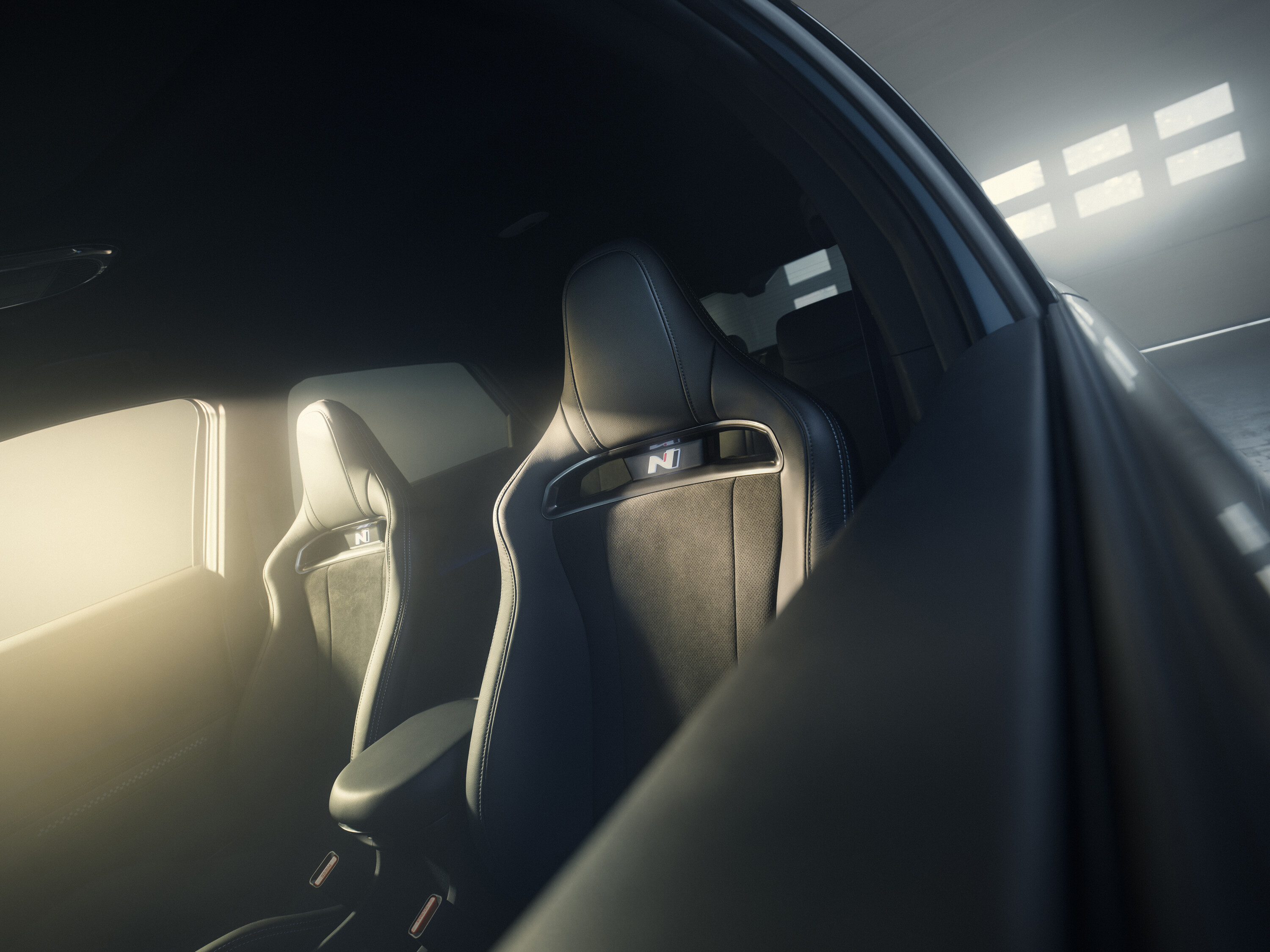
The steering wheel is new, too, and includes no fewer than three N logos. The two hanging below the steering wheel spokes are hot keys for your favourite mix of drive modes (similar to M1 and M2 in a BMW M car) and they pair with a regular ‘drive mode’ button and another labelled NGB for N Grin Boost.
NGB, or boost mode, works with the Ioniq 5 N’s more powerful two-stage inverter to increase peak power from 448kW/350Nm in regular driving (166kW from the front motor; 282kW from the rear) to 478kW/370Nm for 10-second bursts.
That makes the Hyundai marginally more powerful than its Korean sibling, the Kia EV6 GT, which produces 430kW/740Nm.
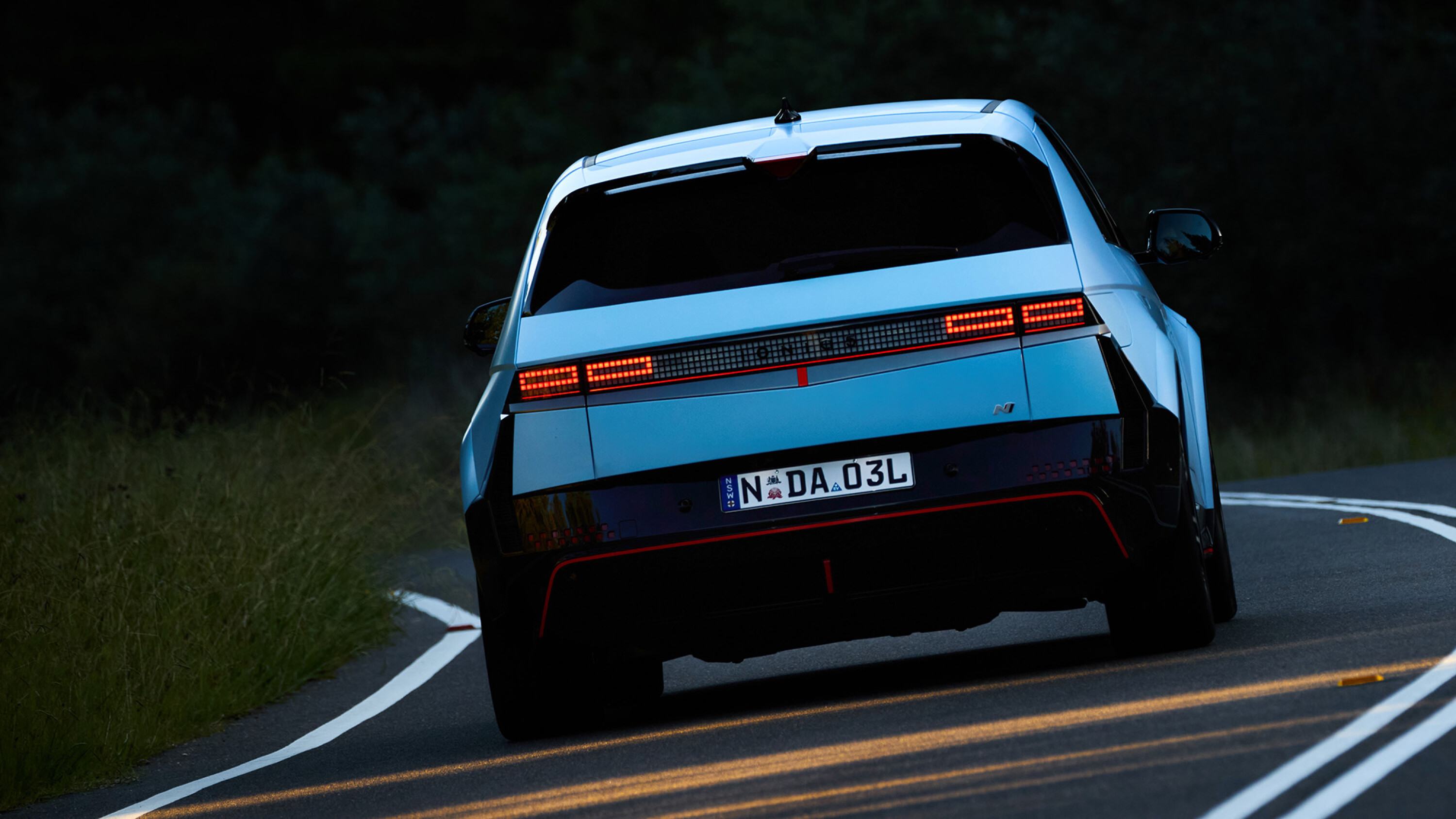
Australian input
Hyundai’s Australian team was deeply involved with the Ioniq 5 N’s development, in recognition of how successful the N brand has been with Aussie enthusiasts.
“Australian Product Development went to the Nürburgring Test Centre in Germany, and to the HATCI (Hyundai America Technical Centre Inc.) California Proving Ground, and we were liaising constantly with Namyang throughout this period,” Rodgers said.
“We were able to advocate for specific characteristics with the engineers who were making the changes at the proving grounds – in America, Korea, and at the Nürburgring.”
“For example, we would look at a change with the potential to make IONIQ 5 N more racetrack capable and ask: ‘Does this make it a better everyday sports car?’” Rodgers said. “These points were often very strongly debated and not easily resolved. But in the end, we trust the decisions we made were the correct ones.”
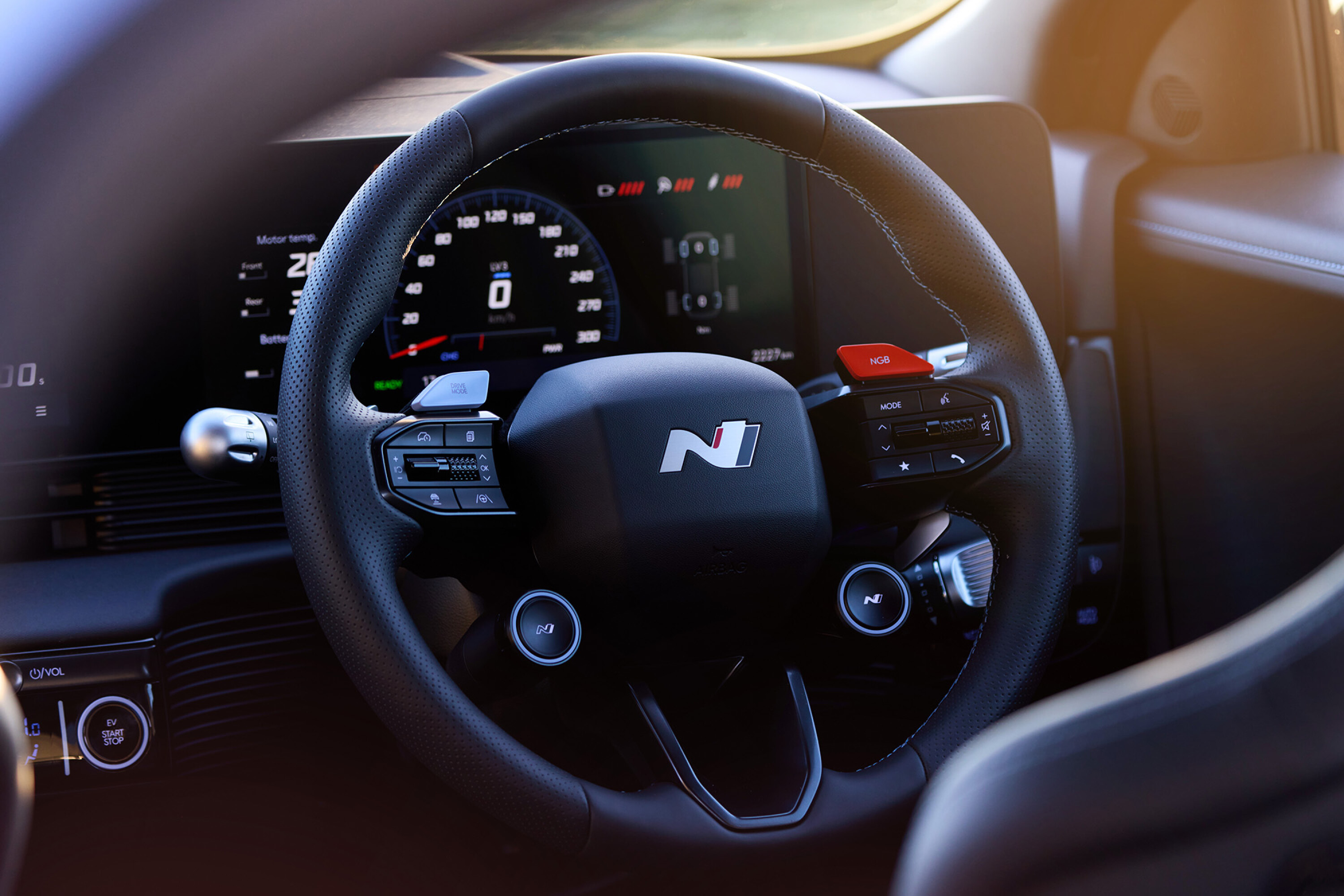
So what differs?
“In Europe you can be on a really nice road, or really poor road; there’s not much in between. In Australia you can go down one stretch of road and go from really good, to patches of average, to really terrible, and back to good again in the space of 300 metres,” Rodgers said.
“Because of that we have massaged the logic and settings for Normal and Sport mode to work with our spectrum of roads, while keeping the taut and responsive character the same,” Rodgers said.
“However N mode is N mode; it’s the same in Europe as it is in Australia. It was really important to us that we kept that flavour.”
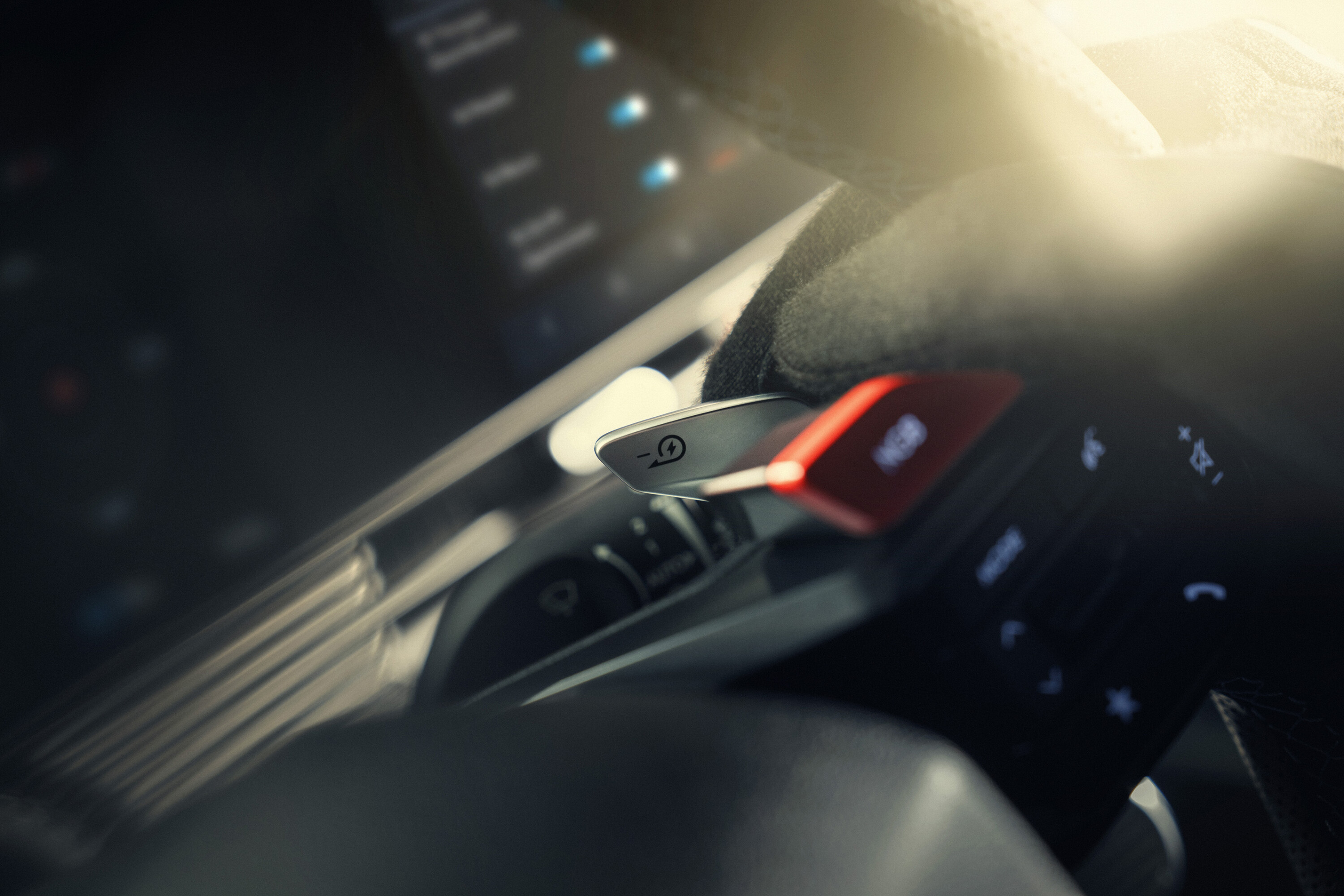
Configurability is core to the Ioniq 5 N driving experience
There are three stages for the adaptive dampers, three for the weight of the steering, four for the battery and even three settings for the launch control to “allow drivers to launch their vehicle like a professional race car”.
Pick the right setting for the grip available and Hyundai says the Ioniq 5 N will hit three figures in 3.4 seconds, which is about the same as a Porsche Taycan Turbo.
Hyundai says the upgraded brake discs are the strongest it has ever fitted to a production car, and they’re colossal – 400mm discs clamped by four-piston callipers up front, 360mm/single-piston out back – but it’s actually re-gen that provides most of the stopping power.
Dubbed ‘N Brake Regen’ the system can deliver 0.6Gs of deceleration and should provide up to 80-90 percent of the braking performance in day-to-day driving. Even on a circuit as demanding as the Nurburgring, Hyundai says regen will account for 40-50 percent of the braking force.
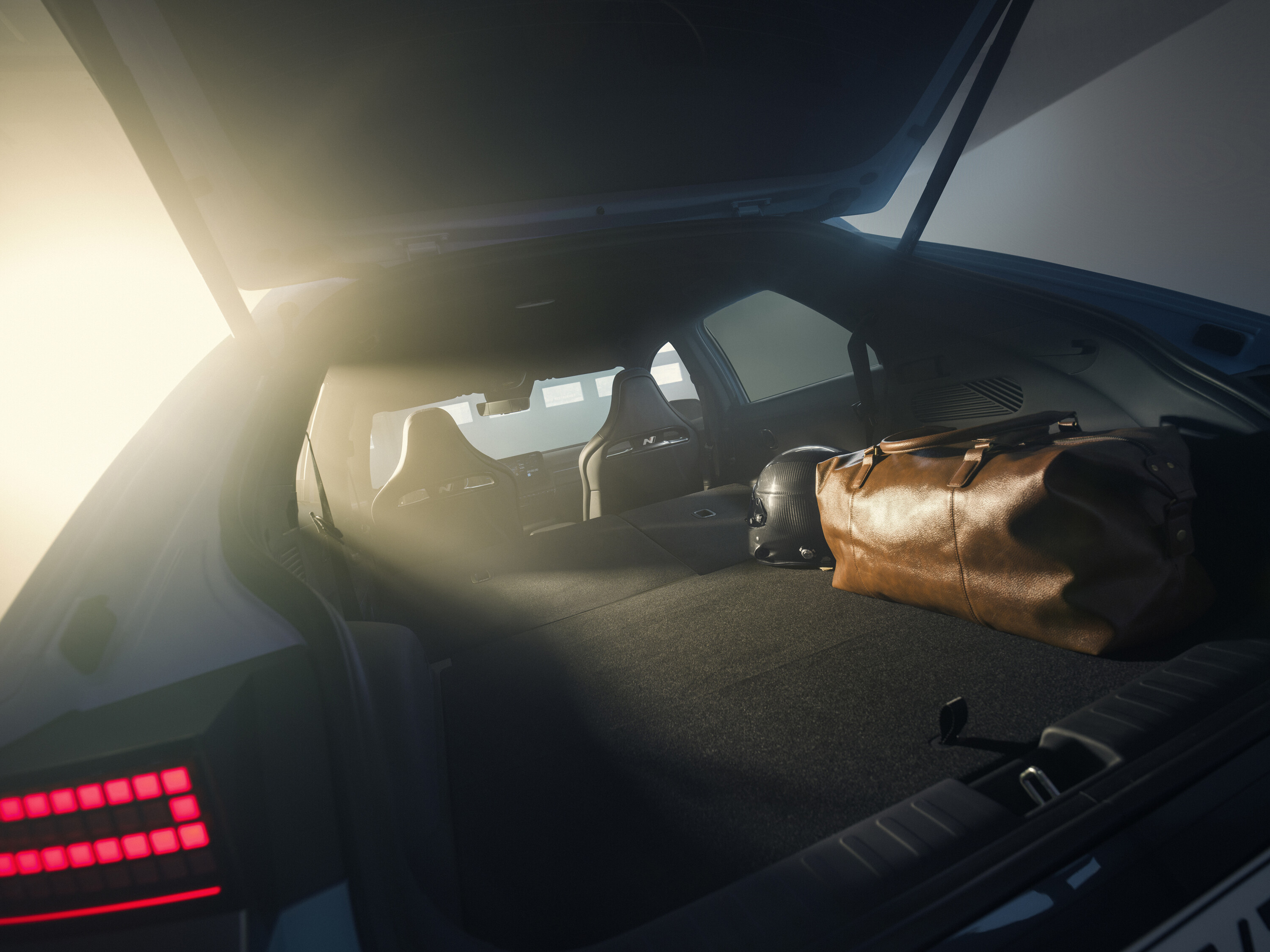
The Nurburgring
Track driving is typically kryptonite for electric cars, but Hyundai has worked hard to ensure the Ioniq 5 N offers repeatable performance over extended runs.
The new battery, for example, is said to be less susceptible to power loss from overheating, and owners can also pre-condition the battery either for drag racing (Drag = shorter hits of full power) or track driving (Track = battery kept at the lowest temp possible for more laps).
The track setting can be further configured via two addition settings: Endurance of Sprint. Endurance maximises range by limiting peak power whereas Sprint is like a ‘qualifying mode’ designed to use over a single lap.
How about a lap record?
“We’re not interested in setting a benchmark Nürburgring lap time – nor lap times around any circuit,” Rodgers said. “Because outright performance is secondary to the core mission, which is fun, character, emotion, connection with the machine.”
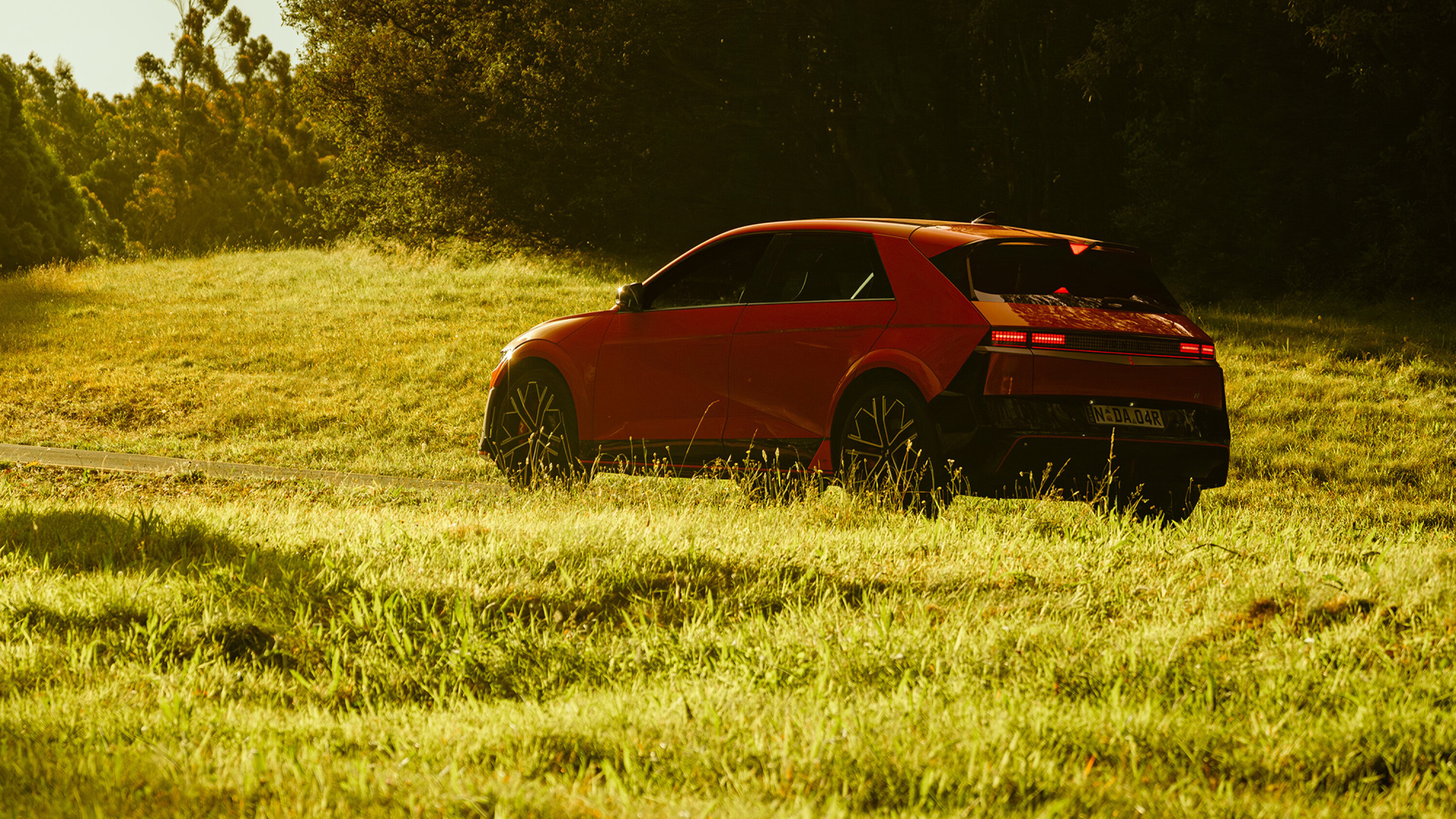
Ioniq 5 N driving range and charging
Depending on how you drive it, the Ioniq 5 N promises up to 448km off a single charge (Ioniq 5 Equip AWD claims 454km). Efficiency is listed at 21.2kWh/100km.
The hero Ioniq 5 N features the same 800V architecture as the wider range, along with the same bigger new-generation 84kWh battery.
| 2024 Hyundai Ioniq 5 N: On-board AC charger | |
|---|---|
| Charging capacity (maximum) | 10.5 kW |
| Standard charging time (10 to 100%) | Approx 10hr 50min at 7kW |
| Charging port | Type 2 (IEC 62196-2 Type 2) |
| 2024 Hyundai Ioniq 5 N: On-board DC fast charger | |
|---|---|
| Charger compatibility | 400 / 800 V |
| 50 kW fast charging time (10 to 80%) | Approx. 70min |
| 350 kW ultra-fast charging time (10 to 80%) | Approx. 18min |
| Charging port | CCS Combo2 (IEC 62196-3 Configuration FF) |
| 2024 Hyundai Ioniq 5 N: Portable emergency charging cable | |
|---|---|
| Type | In-cable control box (ICCB) with domestic 3-pin plug input |
| Output capacity (maximum) | 230 V, 10 A |
| Charging plug | Type 2 (IEC 62196-2 Type 2) |
| Standard charging time (230 V at maximum charging capacity – 10 to 100%) | Approx. 40hr |
| 2024 Hyundai Ioniq 5 N: Vehicle To Load (V2L) | |
|---|---|
| Output capacity (maximum) | 250 V, 3.6 kW, 15 A |
| Connector – inside | Domestic 3-pin plug output |
Hyundai’s disclaimer on range
*Based on a full charge. Figures based on WLTP (Worldwide Harmonised Light-Duty Vehicles Test Procedure) static laboratory combined average city and highway cycle test, which measure, energy consumption, range and emissions in passenger vehicles, designed to provide figures closer to real-world driving behaviour.
Real life driving results will vary depending on a combination of driving style, type of journey, vehicle configuration, battery age and condition, use of vehicle features (such as heating and air conditioning), as well as operating, environmental and climate conditions.
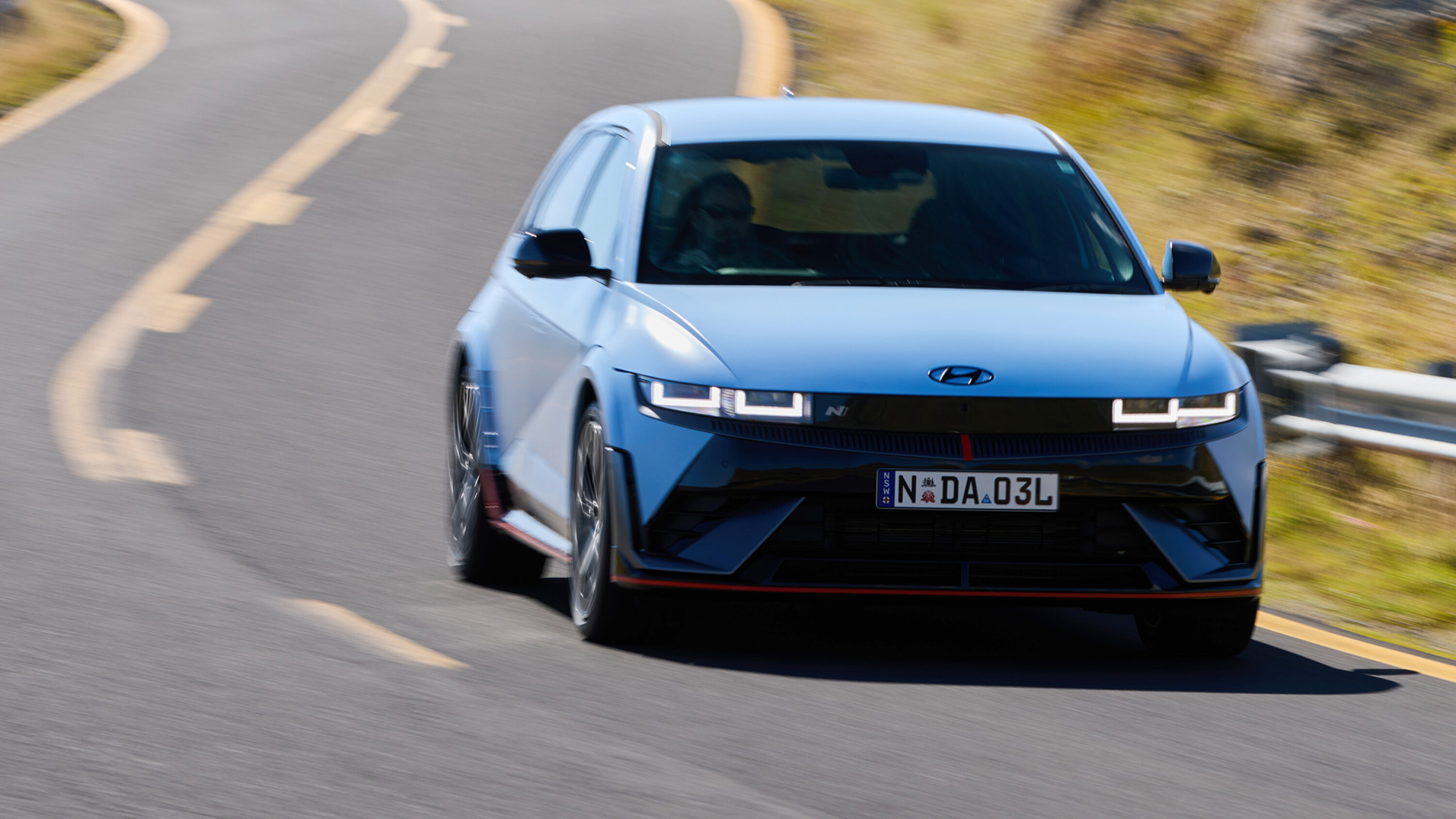
Interior space and features
| 2024 Hyundai Ioniq 5 N: Interior space | |
|---|---|
| Head room front / rear (with optional Vision roof) | 1010 / 982 mm (993 mm / 953 mm) |
| Leg room front / rear | 1060 mm / 1013 mm |
| Shoulder room front / rear | 1465 mm / 1470 mm |
| Hip room front / rear | 1368 mm / 1362 mm |
| Cargo area front – VDA | N/A |
| Cargo area rear – VDA (minimum / maximum) | 480 L / 1540 L |
Safety
As with the Kia EV9, the 2024 Ioniq 5 range gets Highway Driving Assist (HDA2), designed to build on the existing Smart Cruise Control suite.
The system can support the driver’s lane position and lane changes when activated on a highway.
Hyundai also lists the following active safety features.
| 2024 Hyundai Ioniq 5 N: Safety | |
|---|---|
| 6 Airbags | Manual Speed Limit Assist (MSLA) |
| Front & rear seatbelt pre-tensioners | Parking Collision-Avoidance Assist u2013 Front/Side/Rear |
| Blind-Spot Collision Avoidance-Assist – Rear (BCA-R) | Parking Distance Warning Forward/Side/Reverse |
| Blind-Spot View Monitor (BVM) | Power child locks |
| Driver Attention Warning (DAW) | Rear Cross-traffic Collision-Avoidance Assist (RCCA) |
| High Beam Assist (HBA) | Rear Occupant Warning (ROW) |
| Intelligent Speed Limit Assist (ISLA) | Remote Smart Parking Assist (RSPA) u2013 inc. SPAS |
| Lane Keeping Assist – Line/Road-Edge (LKA-L/R) | Safe Exit Assist (SEA) |
| Lane Following Assist (LFA) | Multi-Collision Braking |
| Highway Driving Assist 2 (HDA2) with: | |
| Lane change assist control | Junction Turning / Crossing |
| Lane following off-set control | Direct Oncoming |
| Smart Cruise Control (SCC) w. Stop&Go | Lane Change Oncoming / Side |
| Forward Collision-Avoidance Assist (FCA2) with: | Evasive Steering Assist |
| Car / Pedestrian / Cyclist detection | |
Features
| EXTERIOR | INTERIOR |
|---|---|
| LED headlights (Dual Projection type), tail lights, indicators, reverse | Alcantara and leather appointed interior |
| Power flush type door handles w. capacitive touch | N light seats, manual adjustment |
| Gloss black window frame moulding (DLO) | Metal N scuff plates |
| Gloss black door frame moulding | Metal pedals |
| Gloss black side mirror covers | Premium bio-PET carpet |
| N styling with luminous orange inserts | LED interior lighting |
| Heated & folding electric side mirrors | Luggage net |
| Rain sensing aero wipers | Cargo cover |
| Rear wiper | 480L Rear cargo capacity |
| Power tailgate | |
| Solar control windscreen & front door glass | |
| Privacy rear door & tailgate glass |
| Climate control | |
|---|---|
| Dual zone climate control | Cabin air filter |
| Rear air vents (B-pillar mounted) | Heat pump u2013 high efficiency heater |
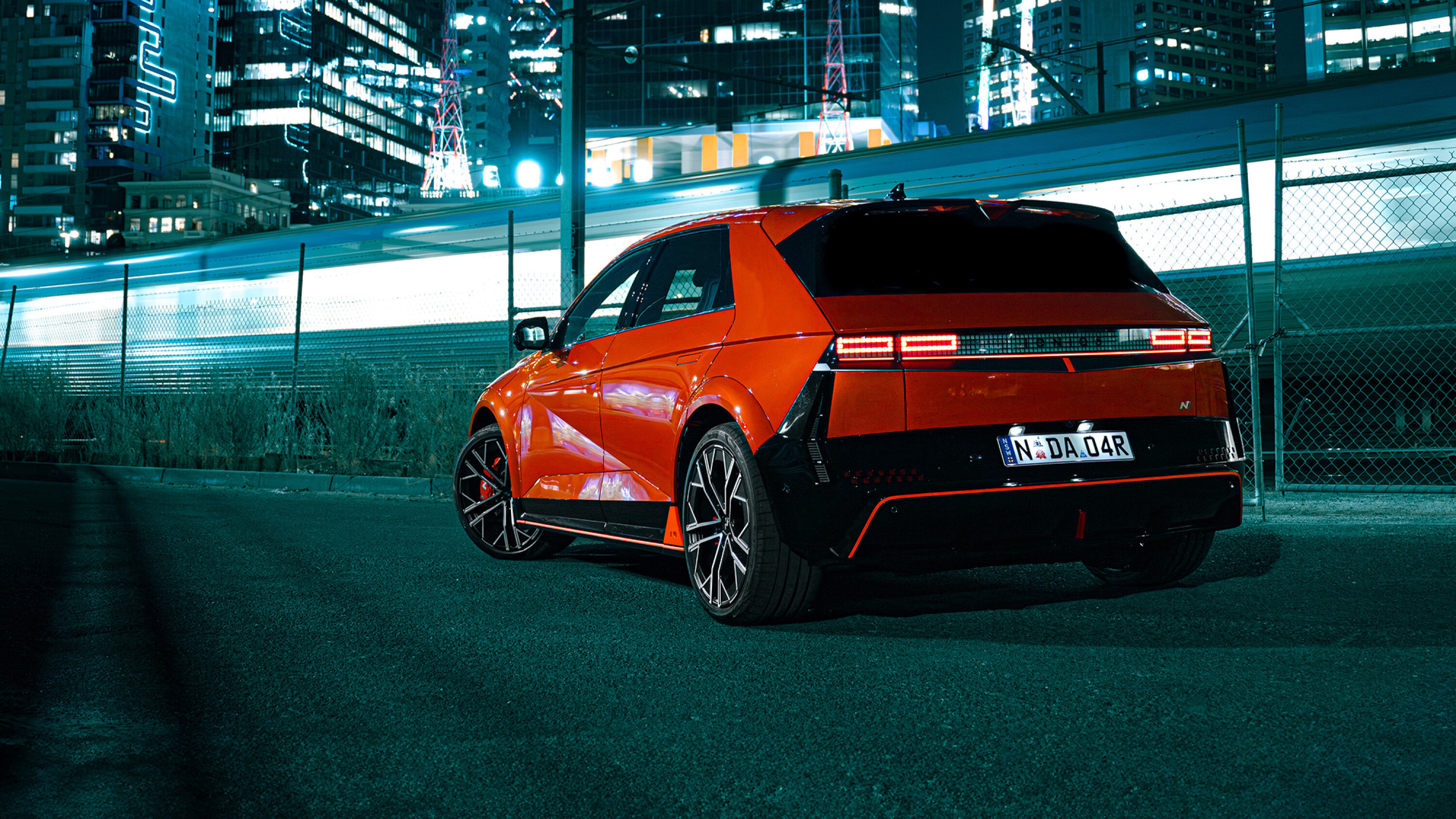
What does the Ioniq 5 N cost in Australia?
In Australia, the Ioniq 5 N is priced from $111,000 before on-road costs.
That makes it about $11,000 more expensive than the Kia EV6 GT, but a whopping $170,000 more affordable than a Porsche Taycan Turbo – which offers similar performance and was benchmarked by Hyundai during the N’s development.
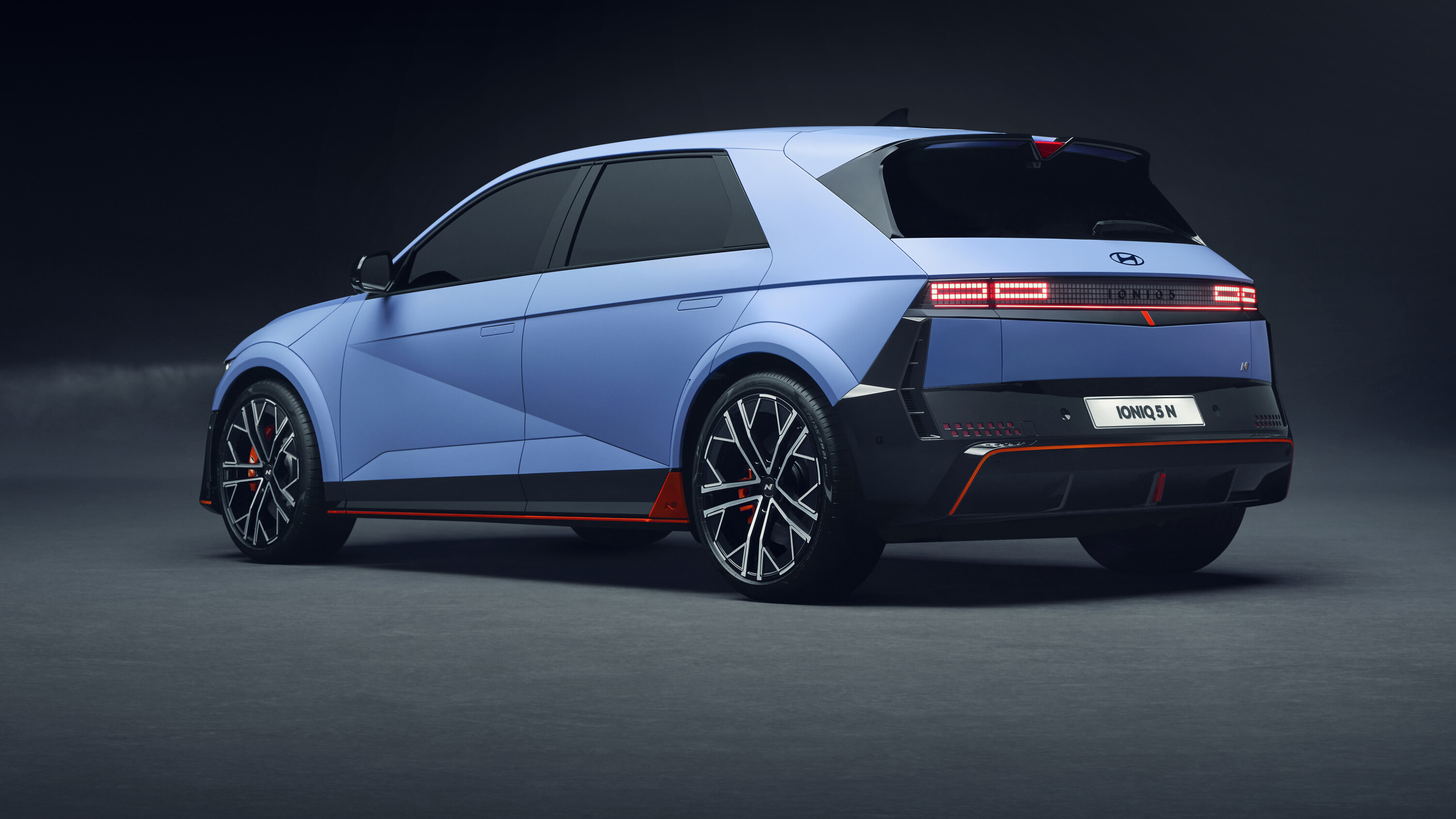
You can have it in any colour you want, as long as it’s… one of these nine.
Performance Blue matte, Performance Blue, Abyss Black, Cyber Grey, Ecotronic Gray, Atlas White matte, Atlas White, Gravity Gold matts and Soultronic Orange.
Just two options are available: a ‘Vision Roof’ for $2000 and matte paint for $1000.
Ioniq 5 N specs in full
| IONIQ 5 N Specifications (February 2024) | |
|---|---|
| Electric motors | |
| Motor type – front | Permanent magnet synchronous motor driving front wheels |
| Motor type – rear | Permanent magnet synchronous motor driving rear wheels |
| Maximum power – front motor / rear motor (with N Grin Boost) | 166 kW / 282 kW (175 kW / 303 kW) |
| Maximum torque – front motor / rear motor (with N Grin Boost) | 350 Nm / 390 Nm (370 Nm / 400 Nm) |
| Maximum power – total (with N Grin Boost) | 448 kW (478 kW) |
| Maximum torque – total (with N Grin Boost) | 740 Nm (770 Nm) |
| Battery | |
| Battery type | Liquid cooled Lithium-ion |
| Capacity | 84.0 kWh |
| Output (with N Grin Boost) | 432 kW (535 kW) |
| Voltage | 697 V |
| Cooling system | Active Air Flap (AAF) – front lower air intake shutters |
| On-board AC charger | |
| Charging capacity (maximum) | 10.5 kW |
| Standard charging time (10 to 100%) | Approx 10hr 50min at 7kW |
| Charging port | Type 2 (IEC 62196-2 Type 2) |
| On-board DC fast charger | |
| Charger compatibility | 400 / 800 V |
| 50 kW fast charging time (10 to 80%) | Approx. 70min |
| 350 kW ultra-fast charging time (10 to 80%) | Approx. 18min |
| Charging port | CCS Combo2 (IEC 62196-3 Configuration FF) |
| Portable emergency charging cable | |
| Type | In-cable control box (ICCB) with domestic 3-pin plug input |
| Output capacity (maximum) | 230 V, 10 A |
| Charging plug | Type 2 (IEC 62196-2 Type 2) |
| Standard charging time (230 V at maximum charging capacity – 10 to 100%) | Approx. 40hr |
| Vehicle To Load (V2L) | |
| Output capacity (maximum) | 250 V, 3.6 kW, 15 A |
| Connector – inside | Domestic 3-pin plug output |
| Transmission | |
| Reduction gear – Front | Single speed reduction gear with dog clutch (DAS) |
| Reduction gear – Rear | Single speed reduction gear |
| Gear ratio | |
| Reduction gear – Front | 2.2647 |
| Reduction gear – Rear | 2.2632 |
| Final gear | 4.706 |
| Differential | |
| Front | Differential with Torque Vectoring Control (TVC) |
| Rear | Electronic-Limited Slip Differential (E-LSD) |
| Driveline | |
| AWD Type | HTRAC Dual Motor with Disconnector Actuator System (DAS) |
| Steering | |
| Type | Rack mounted Motor Driven Power Steering (R-MDPS), rack & pinion |
| Minimum turning circle diameter between kerbs / walls | 12.42 |
| Number of steering wheel turns lock to lock | 2.29 |
| Steering wheel diameter | 370 mm |
| Suspension | |
| Front | MacPherson strut |
| Rear | Multi-link |
| Damping control system | Electronic Control Suspension (ECS) |
| Brakes | |
| Booster | Integrated Electronic Brake (IEB) |
| Front brake type | Ventilated disc with 4 piston monobloc calipers and air guides |
| Front disc dimensions | 400 mm x 34 mm |
| Rear brake type | Ventilated disc with single piston sliding calipers and air guides |
| Rear disc dimensions | 360 mm x 20 mm |
| Aerodynamics | |
| Coefficient of drag (Cd) | 0.313 |
| Weight | |
| Tare Mass | 2,230 kg |
| Gross Vehicle Mass (GVM) | 2,660 kg |
| Permissible Axle Weight (PAW) – front | 1,315 kg |
| Permissible Axle Weight (PAW) – rear | 1,433 kg |
| Roof rack load limit | 80 kg |
| Towing Capacity | |
| Braked | N/A |
| Un-braked | N/A |
| Maximum tow ball weight | N/A |
| Trailer pre-wiring package | – |
| Energy consumption* | |
| Electric driving efficiency (kWh/100km) Combined: | 21.2 |
| All Electric Range (AER) | 448 km* |
| Performance | |
| Maximum speed | 260 km/h |
| 0 ~ 100 km/h (with N Grin Boost) | 3.5 sec (3.4 sec) |
| 80 ~ 120 km/h (with N Grin Boost) | 1.9 sec (1.8 sec) |
| 0 ~ 400 m (with N Grin Boost) | 11.7 sec (11.5 sec) |
| 100 ~ 0 km/h | 40.2 m |
| Dimensions | |
| Exterior | |
| Length | 4,715 mm |
| Width | 1,940 mm |
| Height | 1,585 mm |
| Wheelbase | 3,000 mm |
| Wheel track – front / rear | 1,667 mm / 1,672.2 mm |
| Minimum ground clearance | 142 mm (152 mm for battery) |
| Interior | |
| Head room front / rear (with optional Vision roof) | 1,010 / 982 mm (993 mm / 953 mm) |
| Leg room front / rear | 1,060 mm / 1,013 mm |
| Shoulder room front / rear | 1,465 mm / 1,470 mm |
| Hip room front / rear | 1,368 mm / 1,362 mm |
| Cargo area front – VDA | N/A |
| Cargo area rear – VDA (minimum / maximum) | 480 L / 1,540 L |
| Wheels & tyres | |
| Wheel type | Forged alloy with aerodynamic inserts |
| Wheel dimensions | 21 x 9.5J +45 |
| Tyre type | Pirelli P-Zero HN |
| Tyre dimensions | 275/35R21 103Y XL |
| Spare wheel type | Tyre Mobility Kit (TMK) |
| Driving engagement | |
|---|---|
| Brake Mode – 2 settings; Normal & Sport | N Mode in multimedia display – User configurable menu with N Custom mode, performance options, automatic lap timer with N Track Maps |
| Drive Modes – Eco, Normal, Sport, N, Custom 1, Custom 2 | N Pedal – Circuit feature to enable 1 pedal driving for pro-driver style weight transfer and turn in |
| Left Foot Braking – Circuit feature allowing simultaneous accelerator and brake use, enabled when ESC set to off | N Race – Maximised battery cooling and power control for track driving with Sprint and Endurance modes |
| N Active Sound + (NAS+) – High performance sounds delivered via internal and external speakers, user configurable | N Road Sense – Curve sign detection for user prompts to enable N mode |
| N Battery Preconditioning (NBP) – Pre-conditioning for optimal battery temperature for Drag and Track driving | N dedicated steering wheel – with Drive Modes, Customisable N buttons, and N Grin Boost (NGB) controls |
| N Drift Optimiser – Circuit feature delivering optimised torque distribution to enable pro-driver style drifting | N Torque Distribution (NTD) – User configurable driving force distribution allowing up to 100% power delivery to front or rear axle |
| N e-Shift – Virtual shift control for intuitive feel based driving | Regen Brake Maximisation – Enhanced regenerative braking to minimise brake fade and maximise stopping power |
| N Grin Boost (NGB) – Maximum power delivery for 10 seconds | Track State of Charge – Automatic display of battery consumption per lap during track driving |
| N Launch Control – Acceleration assist with user configurable road grip level for optimised torque control | |
| Electric vehicle functions | |
|---|---|
| Battery heating system – cold climate battery conditioning for DC charging and driving performance | Charging limit function – set the defined battery charging limit for AC/DC charging |
| Charging current function – set the defined battery charging current limit for AC charging | |
Ioniq 5 basics
| Ioniq 5 N | Dynamiq RWD | Techniq AWD | Equip AWD | |
|---|---|---|---|---|
| Power/torque | 478kW/370Nm | 168kW/350Nm | 239kW/605Nm | 239kW/605Nm |
| Range | 448km | 507km | 454km | 454km |
| Battery size | 84kWh | 77.4kWh | 77.4kWh | 77.4kWh |
| Charge capacity | 350kW | 350kW | 350kW | 350kW |
| Weight | 2230 kg | 2015kg | 2125kg | 2125kg |
| 0-100 | 3.4s | 7.3s | 5.1s | 5.1s |
We recommend
-
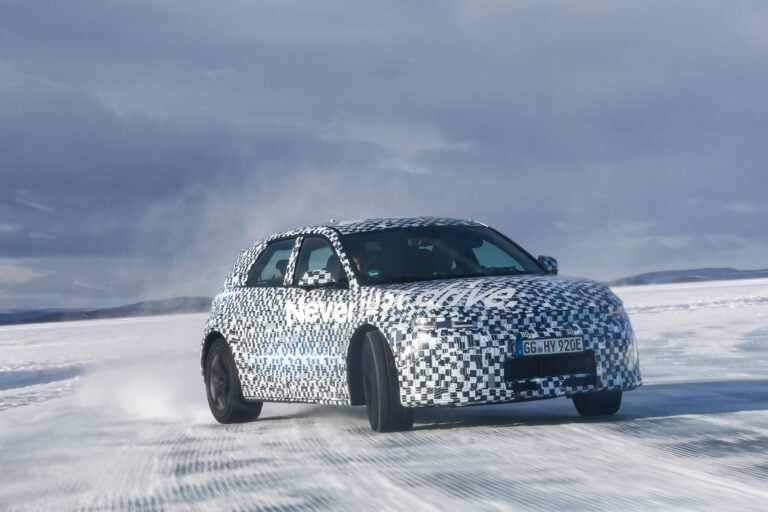 Reviews
Reviews2024 Hyundai IONIQ 5 N review: Prototype drive
With a brief to make the most fun-per-dollar electric car, Hyundai's N Division boffins are confident enough to let us loose in a prototype IONIQ 5 N – on ice!
-
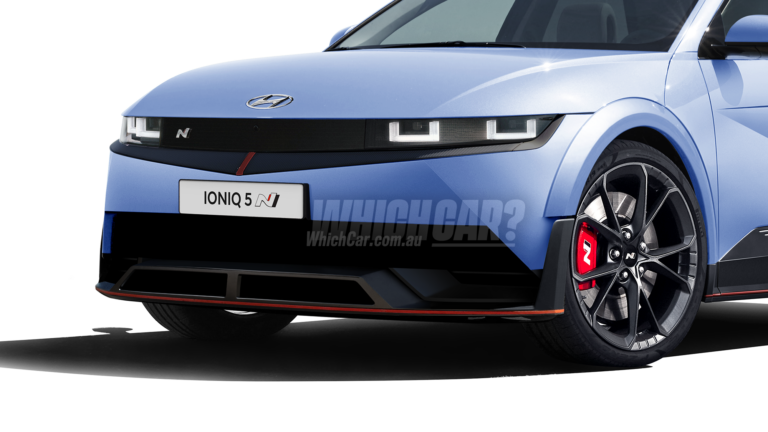 News
News2023 Hyundai Ioniq 5 N spied on the road, and imagined in new renders
Electric foray joins Hyundai N family next year, confirmed for Australia in 2023
-
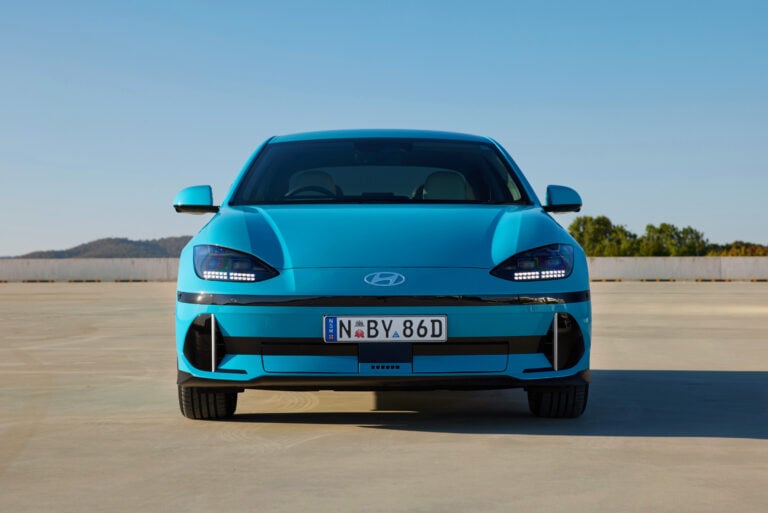 News
NewsHyundai IONIQ 5, IONIQ 6: Australian supply now 'ongoing'
Following our interview with the brand's local boss in March, Hyundai has now confirmed an easing on its restricted EV supply

